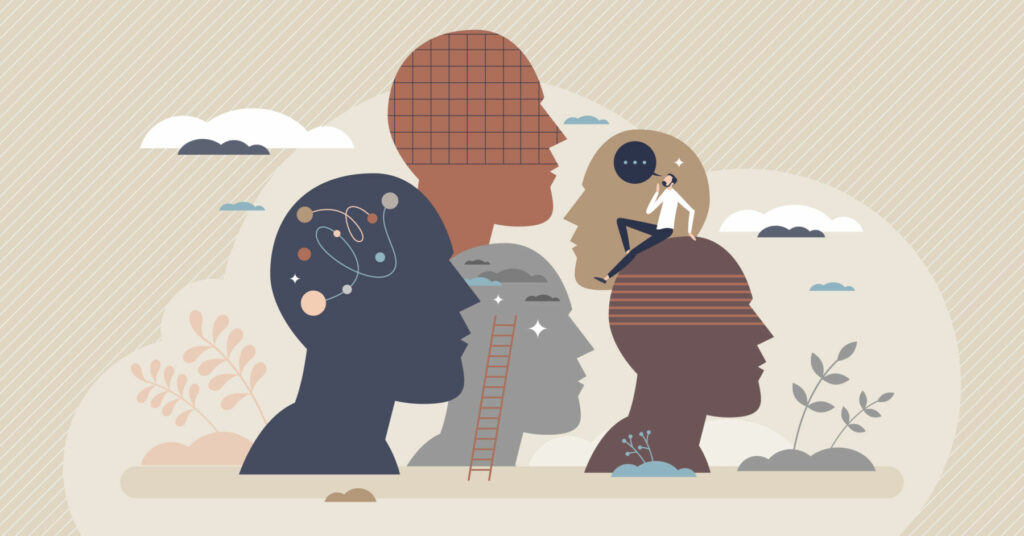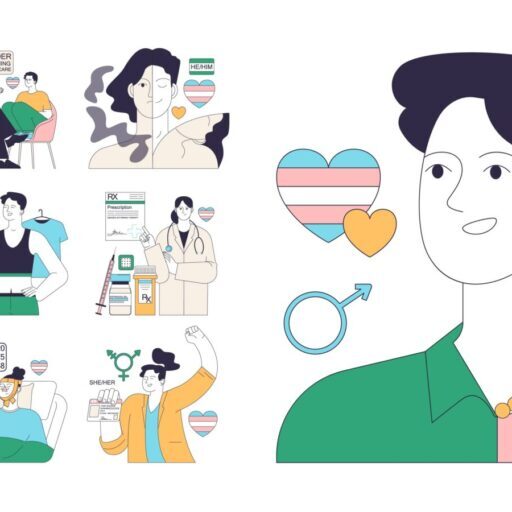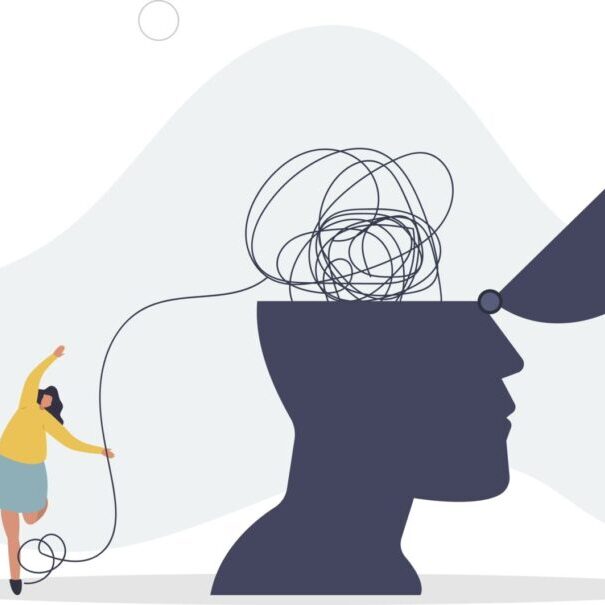Understanding Neurodiversity: Its Significance and Impact

What is Neurodiversity? Neurodiversity is a term that encapsulates the beautiful tapestry of human cognition and challenges society’s idea of what is a “neurotypical” or “normal” brain. The term was first coined in 1998 by Australian sociologist, Judy Singer, to acknowledge that our minds come in all shapes and sizes, each with its own unique strengths and challenges.
From autism and ADHD to dyslexia and beyond, neurodiversity encompasses a broad spectrum of neurological (e.g., “brain-based”) differences that shape how we perceive the world and interact with others. Let’s explore the importance of understanding neurodiversity, its significance, and its impact by challenging stereotypes – recognizing the benefits of neurodiversity in terms of addressing barriers and celebrating the richness it brings to our lives and communities.
Embracing Neurodiversity:
At its core, neurodiversity is about recognizing that neurological differences are not defects to be fixed but variations to be celebrated. Just as biodiversity is essential for the health of our ecosystems, neurodiversity is crucial for the vitality of our society. Neurodivergent individuals possess unique cognitive abilities and perspectives that enrich our collective experience.
Embracing neurodiversity moves us away from pathologizing others as “abnormal” by fostering a more inclusive and accepting society. It is important to understand that neurodivergence does not have a specific “look” or appearance. Neurodivergent people live among us and have diverse presentations that may be passed off as neurotypical. One reason for this is that neurodivergent individuals often “mask” or conceal their differences in order to feel accepted by society.
Neurodivergent individuals often conform to standards and expectations of what their communities deem as “right” and “appropriate.” By allowing neurodivergent individuals to express themselves authentically, we can not only allow them to live free of shame but also embrace their influence and impact on society through the beauty of their differences.
Breaking Stereotypes:
Stereotypes surrounding neurodiversity perpetuate harmful myths and misconceptions, sometimes portraying neurodivergent individuals as socially awkward, intellectually inferior, or incapable of leading fulfilling lives. Without a clear understanding of what is neurodiversity, these stereotypes can live on. These stereotypes undermine the dignity of neurodivergent individuals and hinder their integration into society. Most stereotypes of neurodivergence are untrue or oversimplified.
Consider the stereotype that neurodiverse people are poor communicators. While there may be neurodiverse people who struggle with verbal communication more so than their neurotypical peers, they may also be more aware of and responsive to nonverbal communication. It’s crucial to challenge these stereotypes and recognize the value within every neurodivergent mind.
Reflecting on one’s attitudes and behaviors towards people who are neurodiverse is crucial for fostering inclusive and respectful environments. Here are some questions you can ask yourself to identify and challenge your potential stereotypes or prejudices against neurodiverse individuals:
- What are my initial thoughts when I meet someone who discloses they are neurodiverse?
Consider whether you form assumptions based on their neurodiversity status. Reflect on whether these thoughts are based on personal experiences, societal stereotypes, or media portrayals.
- How do I react to behaviors that are different from my own?
Are your reactions accepting or dismissive?
- Do I make an effort to learn what is neurodiversity and about different neurodiverse conditions?
Reflect on whether you actively seek out information about neurodiversity or rely on possibly outdated or stereotypical information. Consider how expanding your knowledge could change your perceptions.
- Do I use language that is respectful and inclusive of neurodiverse people?
Consider the language and terms you use when talking about or to people with neurodiverse conditions. Are there words or phrases you use that could be considered insensitive or stigmatizing?
- How do I accommodate or support neurodiverse individuals in social and professional settings?
Evaluate whether you consider adjustments or accommodations that could support neurodiverse individuals’ participation and comfort. Do you think these accommodations are necessary or a burden?
- Do I believe that neurodiverse people need to be ‘fixed’ or ‘cured’?
Think about whether your attitude towards neurodiversity is that it is something that needs correcting. Consider how this belief could impact your interactions with neurodiverse individuals.
- How open am I to feedback from neurodiverse individuals about my behavior or language?
Consider how you react to being corrected or informed about your behavior towards neurodiverse individuals. Are you defensive, or are you open to learning and improving?
These questions are just a starting point!
These questions serve as a starting point for personal reflection and are valuable for anyone looking to support inclusivity and reduce bias in their interactions with neurodiverse people. By taking time to critically examine your own beliefs and behaviors, you can make meaningful changes toward a more inclusive society.
Benefits of Neurodiversity:
Neurodiversity brings with it a wealth of strengths and talents that benefit society. It is important to embrace neurodiversity in various contexts, such as education, workplace, and community settings. For instance, individuals with dyslexia may have enhanced spatial reasoning skills, making them adept at visual problem-solving.
Discussing how neurodivergent individuals often excel in areas such as creativity, problem-solving, and attention to detail will raise awareness of how they contribute valuable insights and innovations. By embracing neurodiversity, we unlock the full potential of human ingenuity and foster progress and innovation.
Challenges and Support:
While neurodiversity brings strengths, it also presents unique challenges for individuals navigating a world designed for neurotypical minds. Sensory sensitivities, difficulties with social communication in verbal forms, and executive function challenges are just a few of the hurdles that neurodivergent individuals may face. Providing support and accommodations is essential to ensure equal access to opportunities and resources for all.
Advocacy for a More Neurodiverse Inclusive World:
Inclusion is essential for creating a neurodiverse-friendly society. It requires fostering a culture of empathy, acceptance, and respect for neurodiverse perspectives and experiences. In educational and workplace settings, this may involve implementing accommodations and providing support services tailored to individual needs.
By promoting inclusion, we create a world where everyone feels valued and supported. Promoting neurodiversity inclusion in different spheres of life, such as education, employment, and social interactions will impact others to extend empathy, understanding, and respect for neurodivergent perspectives and experiences.
Here are five actionable steps that you can take to foster inclusivity and support for neurodiverse people:
- Educate Yourself and Others – Take the initiative to learn about neurodiversity and the specific needs and experiences of neurodiverse individuals. This can include understanding different conditions such as autism, ADHD, dyslexia, and others. Use reliable sources to gather information and share this knowledge with peers, family, and colleagues. Hosting book clubs and discussion groups can be effective ways to spread awareness and educate others.
- Promote and Practice Inclusive Communication – Adopt communication practices that are inclusive of neurodiverse individuals. This might involve using clear, straightforward language, allowing extra time for processing information, and being flexible with communication methods (e.g., written instructions instead of verbal). It’s also crucial to ask individuals about their preferred communication styles and make accommodations to meet those preferences.
- Implement and Advocate for Accommodations – Ensure that environments are accommodating to neurodiverse people. This can range from creating quiet spaces in workplaces and schools to support sensory sensitivities, to offering flexible scheduling or alternative assessment methods. Advocating for these accommodations helps normalize them and can lead to broader institutional changes that benefit a wider range of people.
- Challenge Stereotypes and Speak Out Against Discrimination – Actively challenge stereotypes and misconceptions about neurodiversity whenever they arise in conversation or institutional structures. This involves correcting misinformation and advocating for accurate representations. This may also mean intervening in situations where neurodiverse individuals are treated unfairly or advocating for policy changes that protect their rights and dignity.
- Support Neurodiverse Leadership and Representation – Encourage and support Neurodiverse people in leadership roles and in positions of influence. Representation matters, and seeing only neurotypical people in leadership roles perpetuates stereotypes and problematic policies. Supporting neurodiverse entrepreneurs, artists, speakers, and professionals in various fields not only provides opportunities for them but also enriches the community with diverse perspectives.
By taking these steps, individuals and communities can contribute to creating a world that truly values and embraces diversity, promoting an environment where everyone, regardless of neurodiversity, can thrive.
Celebrating Neurodiversity:
Neurodiversity is not something to be feared but celebrated as an integral part of our shared humanity. Countless neurodivergent individuals have made significant contributions to society, shaping history and culture in profound ways. Their achievements remind us of the boundless potential of the human mind and inspire us to embrace diversity in all its forms.
By better understanding neurodiversity, we affirm the worth and dignity of every individual, regardless of their cognitive differences. By challenging stereotypes, recognizing the benefits, addressing challenges, and promoting inclusion, we create a more equitable and compassionate society.
You can join us in championing acceptance and inclusion for neurodivergence in Chicago and Lakeview’s community. Share your stories, educate others, and advocate for policies that support the neurodiversity movement.
This blog is made for informational and educational purposes only. It is not medical advice. The information in this blog is not intended to (1) replace a one-on-one relationship with a qualified licensed health care provider, (2) create or establish a provider-patient relationship, or (3) create a duty for us to follow up with you.



